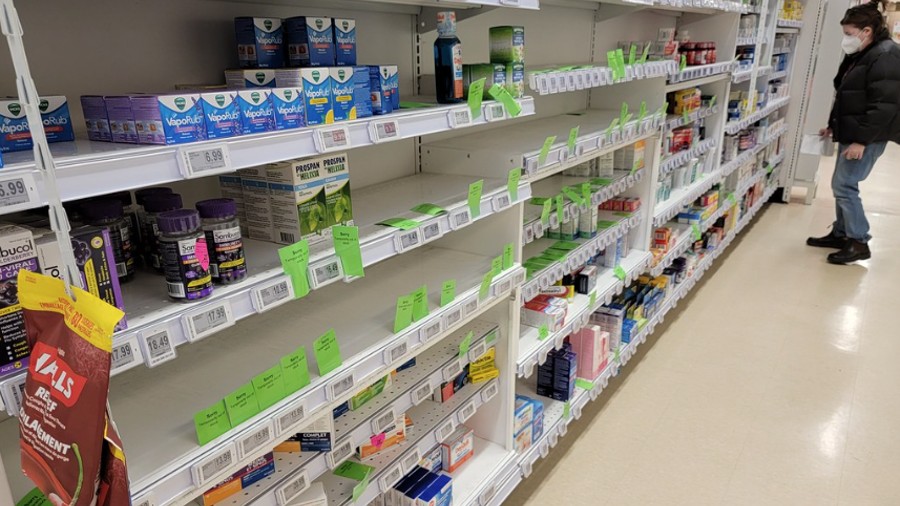Rise of pediatric flu causes worst medication shortage in ’15 years’
Nov 30, 2022, 5:04 AM | Updated: Dec 2, 2022, 11:00 am

As cases of flu and RSV fill pediatric units at hospitals, many families are also having trouble at the pharmacy getting liquid acetaminophen, ibuprofen, and other medications for kids who are recovering at home. (Photo from Flickr @JeffBowen)
(Photo from Flickr @JeffBowen)
As cases of flu and RSV fill pediatric units at hospitals, many families are also having trouble at the pharmacy getting liquid acetaminophen, ibuprofen, and other medications for kids who are recovering at home.
The two largest children’s hospitals in western Washington, Mary Bridge Children’s Hospital in Tacoma and Seattle Children’s Hospital, continue to experience crowded conditions because of the large number of patients with RSV. All hospitals in our state say they continue to be overloaded with cases of respiratory illness–particularly in children.
Adderall shortage causes some to look to alternate treatments
The reason for this shortage is simple, says Elizabeth Meade, M.D., a pediatrician and board president of the Washington Chapter of the American Academy of Pediatrics, an extremely high demand for medication means that manufacturers are struggling to keep up.
“I think they’re being manufactured at pretty consistent rates. But what we’re seeing across the country, and certainly in Washington state right now, is a surge of respiratory illness, viral illnesses in children, like I have never seen before in my 15 years of practice,” Meade said. “And so we’re seeing incredibly high numbers of kids all at once who are infected with common viruses like RSV, flu, COVID, and other kinds of cold viruses.”
Emily Benefield, Manager of Pharmacy Clinical Programs at Seattle Children’s Hospital, says parents should not buy over-the-counter liquid fever reducers unless their child is actually having a fever.
“Pediatric facilities across the country continue to see unprecedented demand for healthcare services, including here at Seattle Children’s, due to a surge in RSV cases and other respiratory illnesses. This surge is currently impacting the liquid formulations of acetaminophen and ibuprofen, which are commonly used by our pediatric patients for both fever and pain. We are actively implementing mitigation strategies for the shortages of these fever-reducing medications and recommend the following to parents and caregivers,” Benefield said.
Benefield also said that parents should not give their kids adult medications unless directed by a doctor, and to avoid giving kids aspirin because it can cause Reye’s Syndrome.
If it’s a low fever, they suggest parents consider alternative ways to keep kids comfortable, such as giving them plenty of water and avoiding overheating them with too many blankets or layers of clothing.
The shortage is likely caused by the high demand, which prompts Meade to urge families not to stock up on medications so that there is enough for everyone.
“I would urge families to really buy only what you need, there will be more of these medications manufactured. And we really want to ensure that everybody who needs them has access, if possible,” Meade said.
Follow Nicole Jennings on Twitter or email her here.













